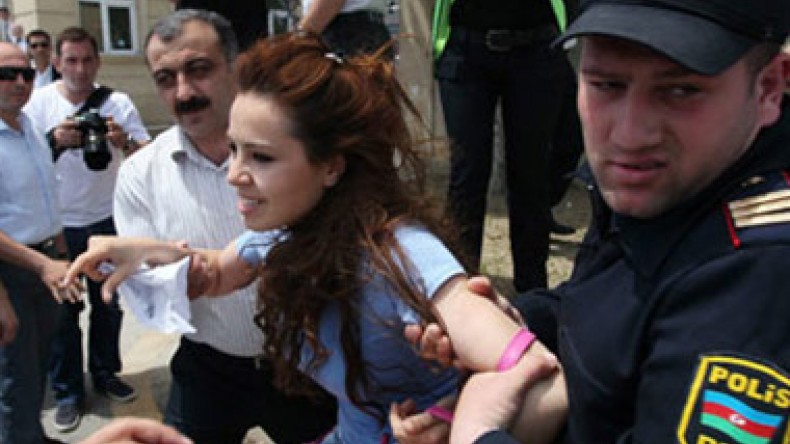
Human Rights Watch: Azerbaijani government ‘‘tightens the Screws’’ in run-up to elections
The Azerbaijani government is engaged in a deliberate, abusive strategy to limit dissent, the new report of the Human Rights Watch on Azerbaijan reports. The 100-page report, “Tightening the Screws: Azerbaijan’s Crackdown on Civil Society and Dissent,” documents the dramatic deterioration of the government’s record on freedom of expression, assembly, and association in the past 18 months.
According to the document such strategy is designed to curtail opposition political activity, limit public criticism of the government, and exercise greater control over nongovernmental organizations. The clampdown on freedom of expression, assembly, and association have accelerated in the months preceding the presidential elections, scheduled for October 9, 2013.
“The authorities have arrested dozens of political activists on bogus charges, imprisoned critical journalists, broken up peaceful public demonstrations, and adopted legislation imposing new restrictions on fundamental freedoms. Human Rights Watch documented the arrest and imprisonment of several high-ranking members of opposition political parties, government critics with large followings on social media, and people who have frequently been involved in political protests,” the report notes.
“A vibrant public debate through the media and freedom to participate in peaceful public demonstrations are part and parcel of free and fair elections. It will hardly be a free and fair vote if so many people who criticize the authorities and report the news in the country are in jail or otherwise harassed into silence,” said Giorgi Gogia, senior South Caucasus researcher at Human Rights Watch and author of the report
“The government of Azerbaijan has for many years had a poor human rights record, but the number of arrests, the adoption of harsher laws, and extensive government efforts to stop and prevent peaceful public protests indicate a new concerted government effort to curtail political and civic activism in the country,” Human Rights Watch said.
According to the document, Politically active youth have become particular targets of this crackdown. For example, in March and April 2013, the authorities arrested seven members from the youth movement NIDA, which means “exclamation mark” in Azeri. All seven are active Facebook and Twitter users who frequently posted criticism about alleged government corruption and human rights abuses. Officials claim that the activists were involved in an alleged plan to instigate violence at a peaceful protest.
“Others arrested or imprisoned include at least six journalists, two human rights defenders who had worked on getting assistance to flood victims, and a lawyer who tried to secure compensation for people forcibly evicted from their homes. The authorities have used a range of trumped-up criminal charges, including narcotics and weapons possession, hooliganism, incitement, and treason to lock up these critics,” the reports reads.
“Prosecuting people who criticize the authorities and report on issues of public interest is a cynical and transparent attempt to stifle government critics,” Gogia said.
Human Rights Watch documented numerous irregularities and due process violations that have undermined the credibility of the investigations as well as legal proceedings against the victims. In 17 of the cases, the authorities did not adequately investigate credible allegations of beatings, threats, and other abuses in custody. They have in many cases denied defendants access to lawyers of their own choosing, especially in the initial days after arrest.
According to the document, in six of the cases, government critics were arrested on charges of unlawful possession of narcotics. The detainees’ lawyers could not access their clients for several days following their arrest, and during interrogations several of the men were questioned primarily about their political activities rather than the allegations of possession of narcotics.
“Azerbaijan has a record of state antagonism toward independent and opposition media. Since January 2013, at least six journalists have been sentenced to prison on spurious charges in apparent retaliation for critical and investigative journalism,” the report says. It also documents four cases in 2013 in which threats, smear campaigns, and violent attacks were clearly used to try to silence critical journalists and a writer.
“The government should end the impunity for violence against journalists, abolish criminal defamation laws, allow peaceful assemblies, and repeal legislative changes establishing harsher penalties for the participants and organizers of unsanctioned, peaceful protests,” Human Rights Watch said.
It also notes that Azerbaijan’s international partners have been critical of Baku’s serious shortcomings in meeting its commitments and respect for human rights, but this has had no impact on their relations with Baku. “That is perhaps due to Azerbaijan’s geostrategic importance and hydrocarbon resources,” Human Rights Watch said.
Newsfeed
Videos






























